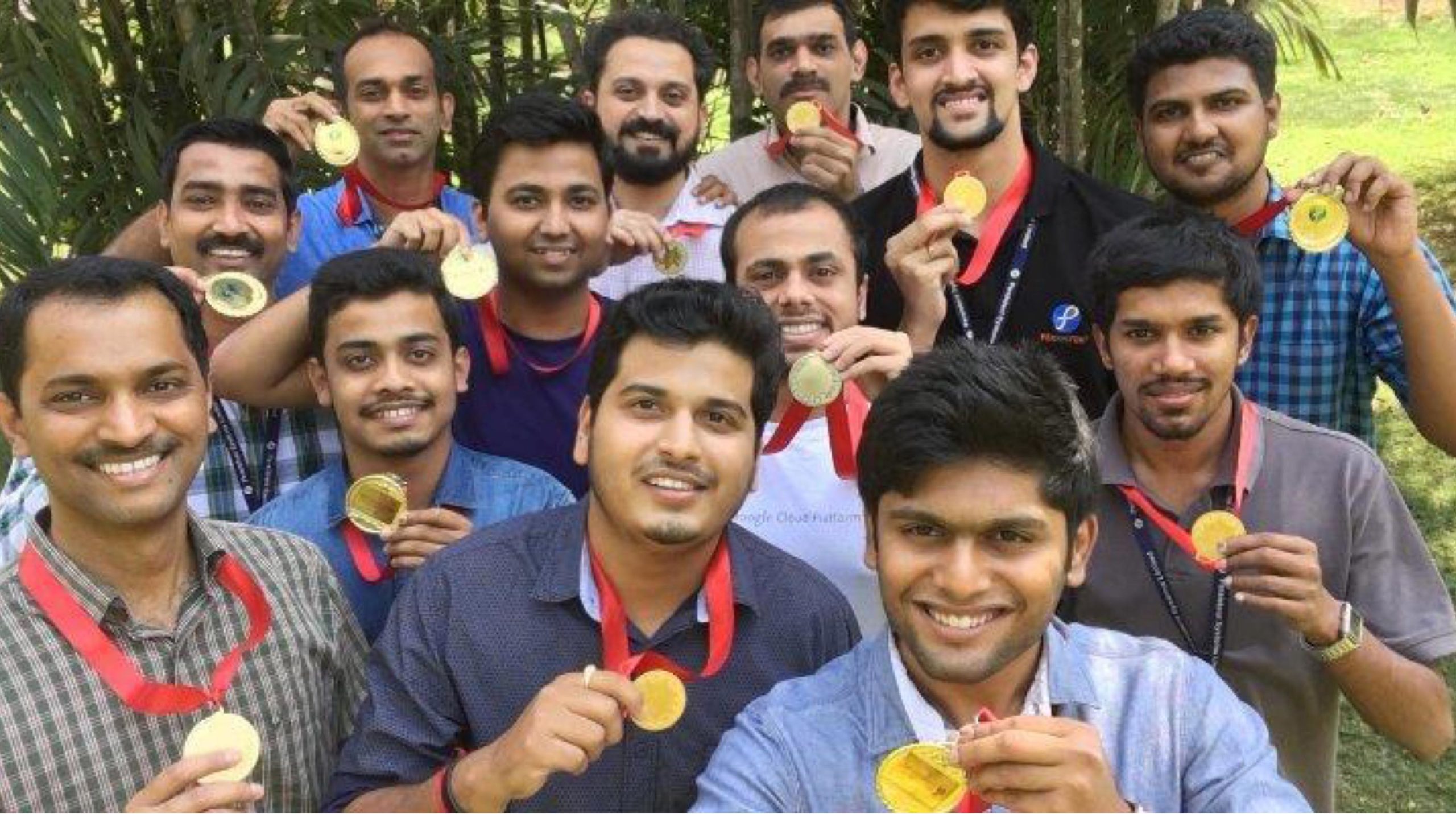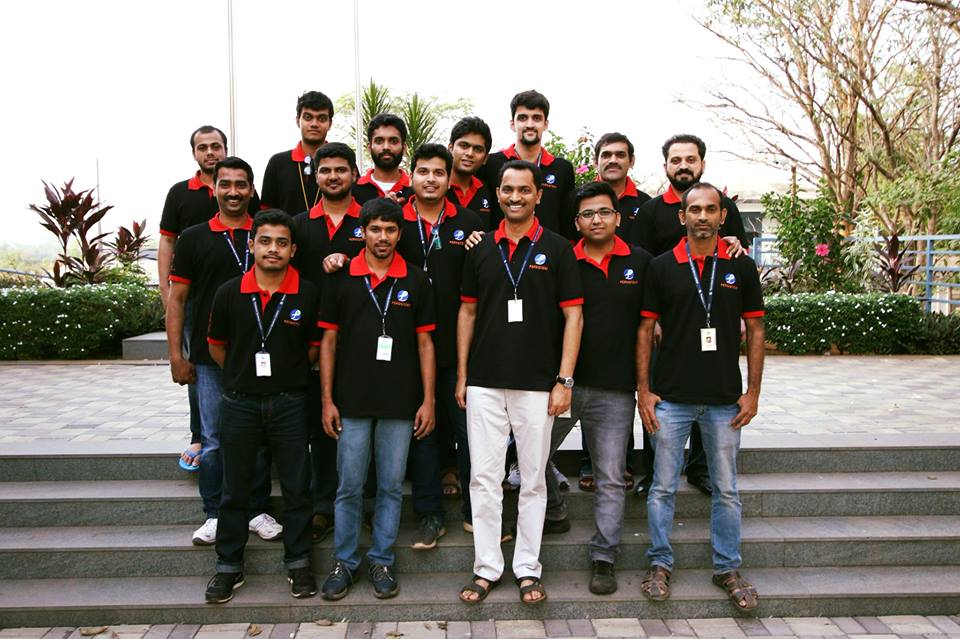Digital technologies are transforming our world at a blistering pace. Software-driven businesses are everywhere around us, and next-gen platforms continue to push the boundaries of what can be achieved by bringing together the latest technology advances. From autonomous cars to smart cities, from better patient care in hospitals to efficient and user-friendly financial services – technology impacts our everyday lives as well. When “Digital Transformation” was announced as the theme for Semicolons 2017, we the Code Miners team assembled to brainstorm on ideas. Having tackled the climate change problem at Semicolons 2016 with our “Two Degrees” platform, we were keen on choosing another problem that would have significant social impact while allowing us to explore cutting edge technology. We thought to ourselves – can we leverage the advances in Digital Technologies to transform the lives of the physically challenged? The idea of DRISHTI evolved from these sessions.
Semicolons – as many of you already know – is Persistent’s 24-hour annual, global hackathon, where self-managed teams ideate and compete to build innovative solutions and showcase the latest technology trends. We at Persistent use hackathons extensively in our digital transformation projects to help our customers rapidly innovate and explore the art of the possible. And Semicolons is an eagerly anticipated internal hackathon that allows us to do it for fun and keep our skills sharp! In its 6th edition this year, Semicolons 2017 had 45 teams across 11 global centers in 5 different countries – our biggest hackathon till date with 600+ Persistent employees involved. And the solutions we built varied from enterprise innovations in financial services and healthcare to social themes such as IoT-driven water conservation, improved governance with digital enablement and productivity solutions for the differently abled.
Each team had the freedom to choose their problem statements as long as they adhered to the theme. Many of them used the principles of Design Thinking extensively to explore the problem space, identify personas and conduct sample user interviews before the actual event. This helped refine the problem scope and solution approach, and design more meaningful, engaging applications. We at Code Miners were able to better understand the needs of the visually impaired as we went along this journey for defining DRISHTI, helping us learn the value of a Design Thinking led approach as well.
And then there was the technology behind it! DRISHTI is an application that leverages advances in deep learning, artificial intelligence, image recognition, person identification, speech-to-text and accessibility technologies to bring digital transformation to the lives of visually impaired. DRISHTI enables them to navigate and experience their everyday personal life more efficiently and lead more effective professional lives, integrating them into the mainstream and driving social change. We experimented with Google’s TensorFlow libraries for machine intelligence, developing convolutional neural networks and naïve Bayes models for scene identification. We used supervised learning in Scikit-Learn for face identification. Object identification within scenes was achieved using Google Vision APIs and CloudSight. And Google text–to-speech for a summarizing the scene or a meeting digest to the visually impaired user.
Competing globally with 45 teams, our DRISHTI app won the top spot as well as “Most Innovative Solution” award at Semicolons 2017. Here’s the Team Code Miners from Persistent’s Goa office that made it all happen!
Team Members: Durgadas Kamath, Manish Kelkar, Pranav Tendolkar, Yussuf Shaikh, Clyde Dcruz, Aaron Colaco, Amol Pednekar, Akhil Rane, Aldrich Mascarenhas (Student – PCCE), Sarvesh Palav (Student – PCCE)
Team Owners: Pandurang Kamat, Amey Navelkar, Ranjit Naik, Rahul Prabhudesai, Amod Borkar
Hackathons are in our DNA and have become a part of our culture. Click here to learn how we utilize hackathons to drive innovation both internally and with our customers.
Find more content about
IOT (13) hackathon (7) digital transformation (49) digital (12) semicolons (1) design thinking (2) Machine Intelligence (2)







